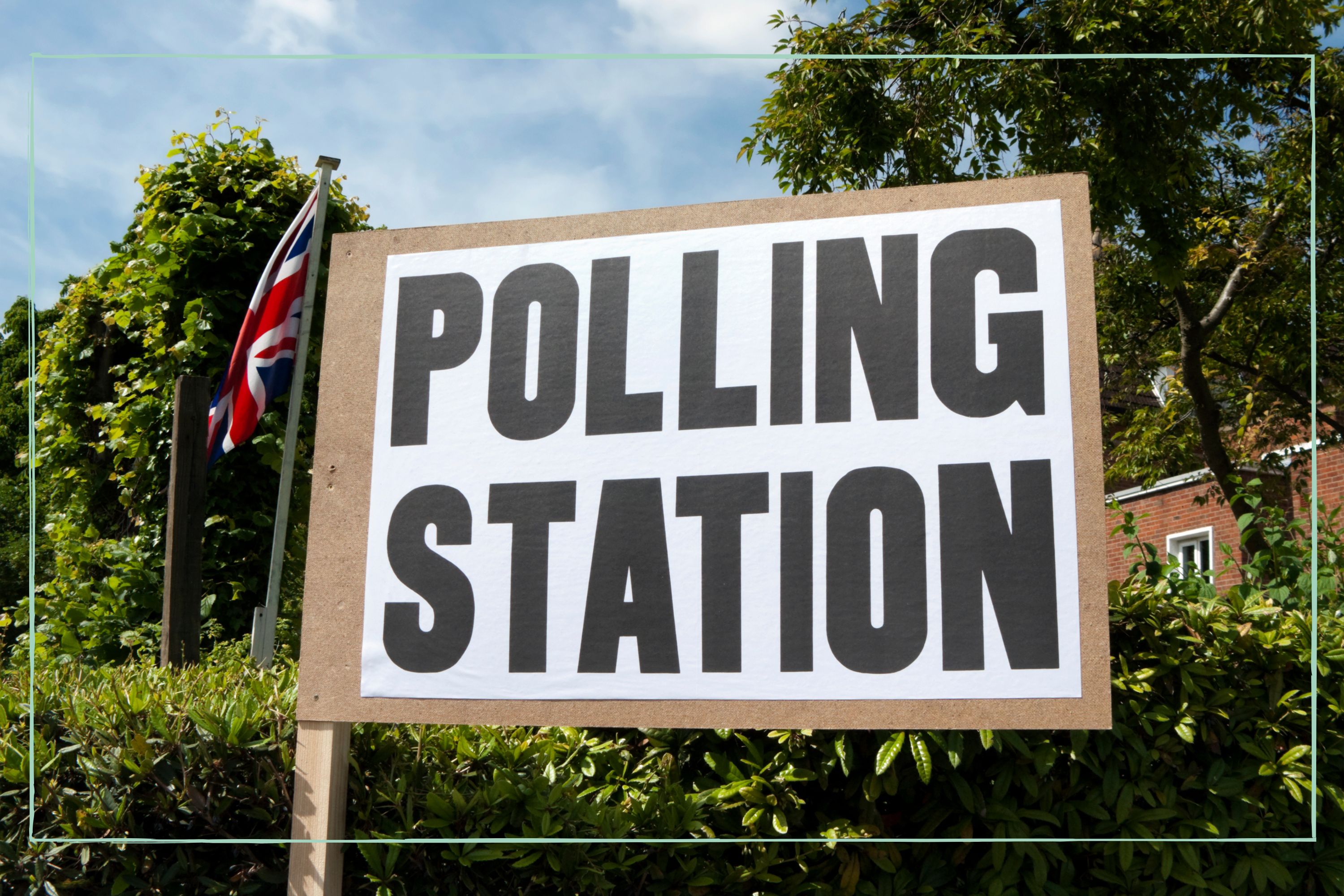When is the next general election in the UK and how often is a general election held?
The UK has had three different Prime Ministers in office in the space of less than a year

Emily Stedman

Parenting advice, hot topics, best buys and family finance tips delivered straight to your inbox.
You are now subscribed
Your newsletter sign-up was successful
Following the resignation of Liz Truss after just 44 days in office and the appointment of new Prime Minister Rishi Sunak, many want to know when is the next general election?
The departure of Liz Truss from No 10 Downing Street after mere weeks in the role has certainly captured public attention, with many wanting to know what happens when a Prime Minister resigns and what's next for British politics. In her resignation speech, the former Conservative leader announced that a new leadership election would take place within the week. However, Labour leader Keir Starmer was one of many who asked if a general election can be called - putting the power of appointing a new PM back into the people's hands.
When it comes to general elections though, there are plenty of rules and regulations in place that determine when one is called. We delve into the history of them, whilst also sharing details of when the next general election is scheduled to take place and whether there is likely to be an early election.
When is the next general election in the UK?
Unless an earlier one is called, the next election isn't due until January 2025. This is because it will be five years since the current Parliament first met, on 17 December 2019, plus the time needed for campaigning.
Whilst calls for an imminent election have been made, the power to call a snap election remains firmly within the Prime Minister's hands - and their hands only. If a PM wants an early election they need to make a request to the King to dissolve Parliament.
Westminster voting intention:LAB: 46% (+2)CON: 29% (-1)LDEM: 9% (-)GRN: 4% (-1)REF: 4% (-)via @DeltapollUK, 26 - 30 Janhttps://t.co/dmeySodP2qJanuary 31, 2023
In the wake of Truss's resignation, several opposition party leaders called for a general election immediately - including Labour's Keir Starmer and Ed Davey, the leader of the Liberal Democrats.
"The Conservative Party has shown it no longer has a mandate to govern. After 12 years of Tory failure, the British people deserve so much better than this revolving door of chaos," says Keir Starmer. "The Tories cannot respond to their latest shambles by yet again simply clicking their fingers and shuffling the people at the top without the consent of the British people.
Parenting advice, hot topics, best buys and family finance tips delivered straight to your inbox.
"They do not have a mandate to put the country through yet another experiment - Britain is not their personal fiefdom to run how they wish. We must have a chance at a fresh start. We need a general election - now."
Scottish First Minister Nicola Sturgeon similarly echoed the Labour leader's criticism of the Tory party, additionally tweeting: "A General Election is now a democratic imperative."
There are no words to describe this utter shambles adequately. It’s beyond hyperbole - & parody. Reality tho is that ordinary people are paying the price. The interests of the Tory party should concern no-one right now. A General Election is now a democratic imperative.October 20, 2022
Rishi Sunak has so far resisted calls for an early election, and it's considered unlikely that he will change his mind, due to the Conservative Party being down in opinion polls.
Since taking office, the Party image has been further damaged by repeated strikes in many areas of the public sector, as well as the recent sacking of Nadhim Zahawi over his tax affairs.
"In January 2023, 46 percent of British adults would vote for the Labour Party in a general election, compared with 25 percent who would vote for the Conservative Party," stated data insights platform Statista in their analysis from a recent poll.
How often is a general election held?
In the UK, general elections are held every five years by law. The Fixed-Term Parliament Act of 2011 created these fixed five-year periods and though it has now been repealed, five years remains the maximum time that can pass before the next election.
When the Act was in place, it was not the PM that held the power to call a general election, and instead there were two circumstances under which an early election could be held: if two-thirds of MPs agreed to one or if the House of Commons voted no confidence in the government.
Before this, the power to call a snap election was held by the Prime Minister, and they were able to do this at any time if they thought it was politically necessary or would be beneficial - e.g. result in a larger majority of MPs for their party. That power has now been returned.
Why is the general election always held on a Thursday?
There is no official rule in place, but it has been tradition to hold general elections on a Thursday since the 1930s. By-elections have also mostly been held on Thursdays since 1965.
There are many theories as to why Thursday emerged as the traditional day to hold elections in the UK. It is thought that Friday was ruled out because it was payday, and voters would be more likely to go to the pub to spend their money or vote while drunk.
Sunday was also ruled out so that people's voting intentions could not be swayed by a sermon they heard at church.
Thursday was thought to be the best option because it is a traditional market day, meaning people were more likely to be out in their town and near a polling station at some point during the day.

When was the last general election?
The last general election in the UK was held on Thursday 12 December 2019. It was called three years early after Parliament agreed to the motion by the necessary two thirds majority.
A few months before, in July, Boris Johnson had been appointed as the new Prime Minister through a Conservative Party leadership contest, after Theresa May stepped down due to failing to secure a Brexit deal that was approved by Parliament.
Just two years before that, in 2017, there had been another snap election after David Cameron resigned as Prime Minister, following the outcome of the EU referendum.
Boris Johnson's Conservative party won the most recent general election by a large majority, securing 365 seats out of 650.
How many terms can a Prime Minister serve in the UK?
In the UK, there is no limit to how long a politician can remain as Prime Minister. However, they must retain the support of the House of Commons to avoid a confidence vote, which, if they lose, will result in a general election.
And even though the two most recent Prime Ministers weren't appointed through a general election, and Metro reports that just 0.0004% of registered UK voters had a say in the appointment of Rishi Sunak, he can go on as Prime Minister for as long as he wins elections.
Video of the Week

Ellie is GoodtoKnow’s Family News Editor and covers all the latest trends in the parenting world - from relationship advice and baby names to wellbeing and self-care ideas for busy mums. Ellie is also an NCTJ-qualified journalist and has a distinction in MA Magazine Journalism from Nottingham Trent University and a first-class degree in Journalism from Cardiff University. Previously, Ellie has worked with BBC Good Food, The Big Issue, and the Nottingham Post, as well as freelancing as an arts and entertainment writer alongside her studies. When she’s not got her nose in a book, you’ll probably find Ellie jogging around her local park, indulging in an insta-worthy restaurant, or watching Netflix’s newest true crime documentary.
- Emily StedmanFeatures Editor